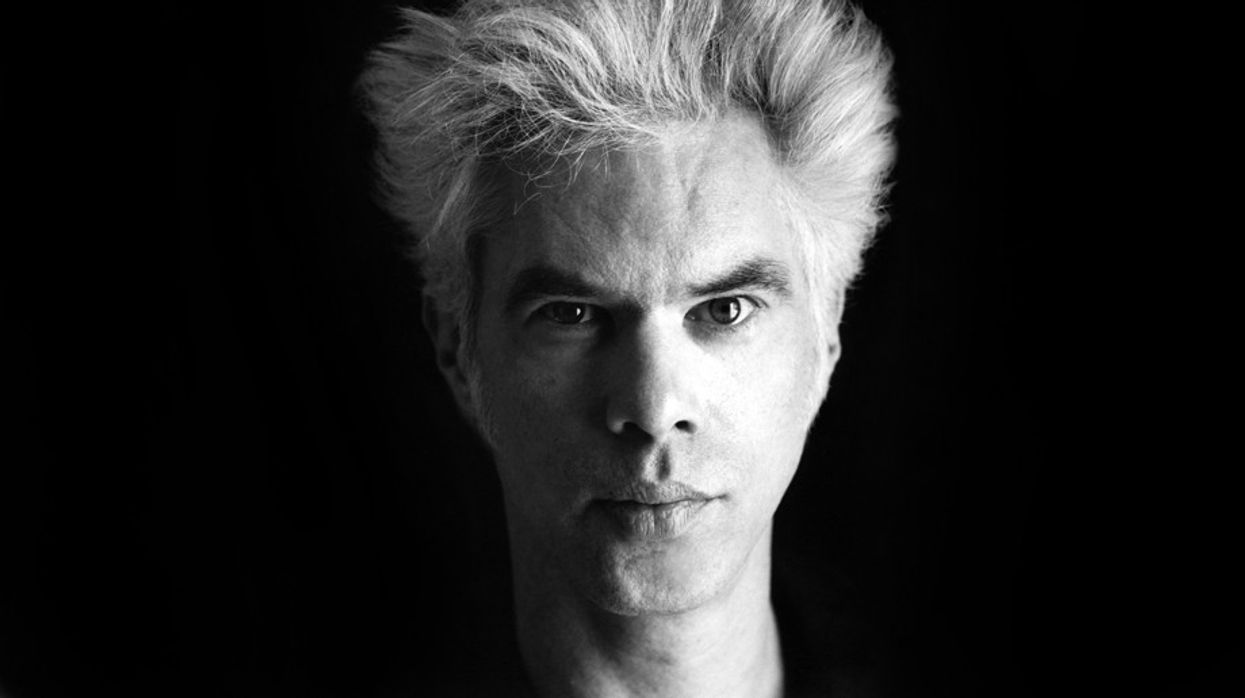The last person I'd ever expect to give a list of golden rules of moviemaking would be independent filmmaker Jim Jarmusch. It isn't because he's not brilliant -- I'm sure we've all seen Broken Flowers and Dead Man -- it's because he's a maverick -- a non-conformist. His narratives deviate from the traditional form, instead following a more experimental approach. So, it sounds insane for, and so unlike Jim Jarmusch to have compiled a handful of rules on moviemaking, but once you read them, you'll realize they're not so much rules as they are -- anti-rules. Check them out after the jump
Jarmusch shared 5 of these "rules" with MovieMaker back in 2004, and they were so awesome, apparently, that they decided to republish the issue. His advice touches on a couple of themes: egoism and a staunch and severe stance on cinematic and artistic independence. Jarmusch starts out by saying:
There are no rules. There are as many ways to make a film as there are potential filmmakers. It’s an open form.
This is the foundation he sets the rest of his thoughts on. Filmmaking and cinema is not about rules -- rules make art easier to observe and experience, which is not always so for creating it. To not call something filmmaking because it doesn't have a narrative or is just a reel of celluloid with pressed leaves is missing the point.
I personally love when filmmakers talk about inflated egos and humility. Jarmusch advises us that filmmaking is never done by one person. It takes a village to make a film, and respecting and valuing each contributor is something every filmmaker must learn:
Filmmaking is a collaborative process. You get the chance to work with others whose minds and ideas may be stronger than your own. Make sure they remain focused on their own function and not someone else’s job, or you’ll have a big mess. But treat all collaborators as equals and with respect. A production assistant who is holding back traffic so the crew can get a shot is no less important than the actors in the scene, the director of photography, the production designer or the director.
Another point he makes that echoes the sentiment on egoism is originality. It's easy to get a big head when you think you're the first person to ever use a certain shot, use a certain edit, or pen a certain narrative. Jarmusch says "no way":
Nothing is original. Steal from anywhere that resonates with inspiration or fuels your imagination. Devour old films, new films, music, books, paintings, photographs, poems, dreams, random conversations, architecture, bridges, street signs, trees, clouds, bodies of water, light and shadows. Select only things to steal from that speak directly to your soul. If you do this, your work (and theft) will be authentic. Authenticity is invaluable; originality is nonexistent.
Do you know how freeing it is when you stop trying to be original and start being authentic? I can't count how many times I've thought of a story idea, shot, or character and convinced myself that I was just the most brilliant artist in the world, until I read a book, saw a photo, or watch a movie and realized, "Oh -- that's where I got it from."
Most are convinced that Quentin Tarantino is an excellent filmmaker, yes? The Kill Bill series is rife with homages from other films and TV shows -- shots, dialog, costumes, and characters that he got from other artists. My favorite demonstration of this is this Everything is a Remix video showing the many similarities between the Kill Bill series and other films and shows. Check it out below.
There's no shame in stealing, in fact, most (if not all) the artists and filmmakers of today steal and have stolen from those who went before them. The great ones just had great taste.
Finally, Jarmusch tells us not to let the man get us down. Talking specifically about financiers, distributors, producers, and other miscellaneous executives he says:
They can either help you, or not help you, but they can’t stop you. People who finance films, distribute films, promote films and exhibit films are not filmmakers. They are not interested in letting filmmakers define and dictate the way they do their business, so filmmakers should have no interest in allowing them to dictate the way a film is made.
So, be bold. Be humble. And make the film you want to make. It doesn't matter if you feel like your idea is tired and over done, or you're ripping off film after film after film, or higher-ups are trying to drag your project through the most profitable dirt -- just create what satisfies you. If you like the film you're creating, then what else could matter? In the end, you're the one who will have the most lasting effects from what you made, so you might as well make it the way you want it.
Jim Jarmusch continues to tell the stories he wants to tell, most recently with his film Only Lovers Left Alive, which is a romantic drama about vampires. It premiered at the 2013 Cannes Film Festival and was nominated for the Palme d’Or.
What do you think? Did Jim Jarmusch's advice help you? What other advice could you lend to filmmakers?
Link: Jim Jarmusch's 5 Golden Rules (or non-rules) of Moviemaking -- MovieMaker Magazine


 "'Back Home"via Mercedes Arutro
"'Back Home"via Mercedes Arutro 'Back Home'via Mercedes Arutro
'Back Home'via Mercedes Arutro 









